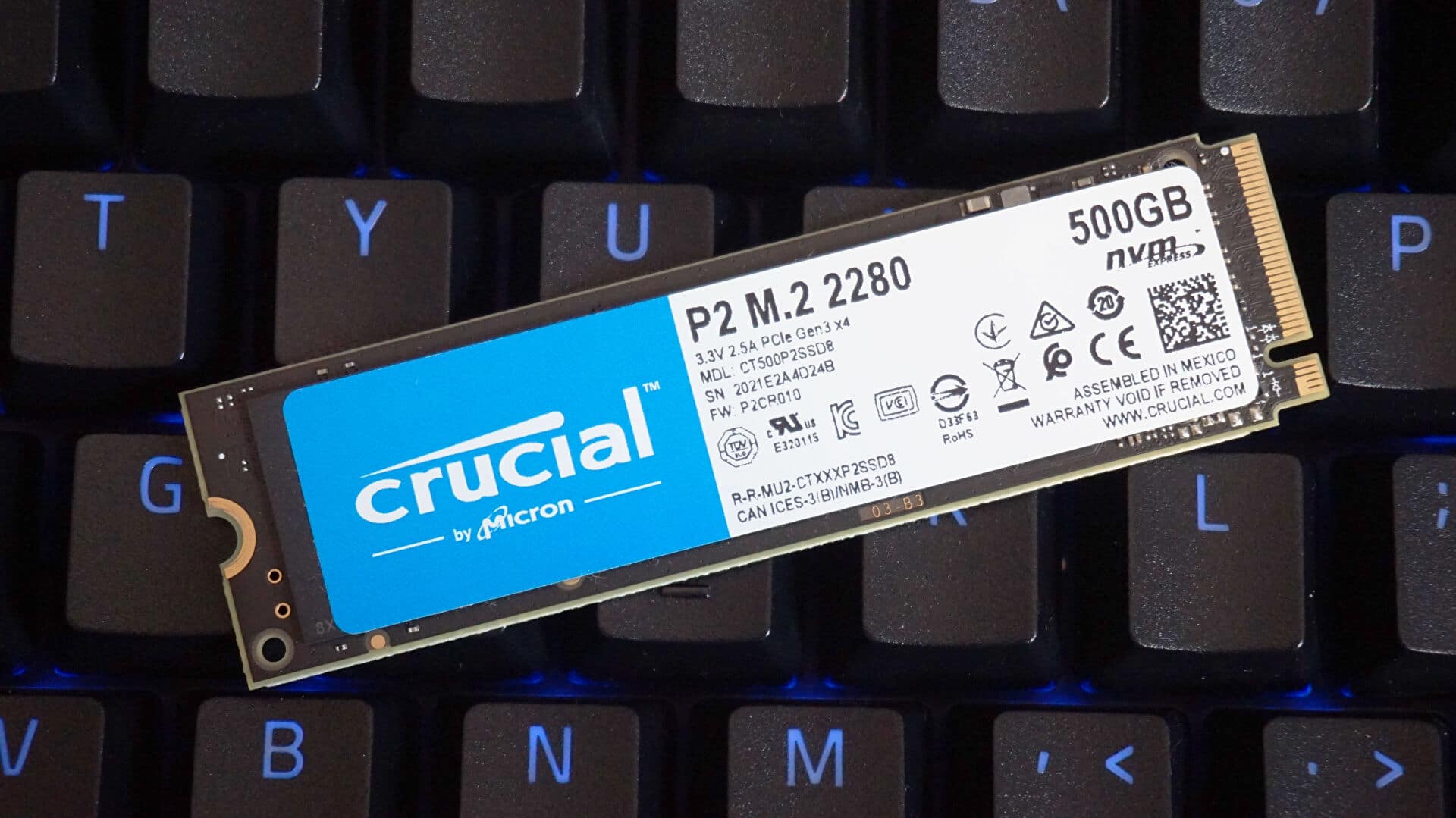This 2TB Crucial P2 NVMe SSD is going for $155.99 at GameStop


The Crucial P2 is a popular budget NVMe SSD, and today it’s decidedly more budget than usual. GameStop are selling the massive 2TB variant of the drive for just $155.99, some $15 less than the cheapest comparable drive anywhere else and way below the $174 that Amazon are charging. That’s a great deal for a drive that we wholeheartedly recommend – especially when it’s down to crazy-low prices like this.
The P2 is rated for speeds up to 2400MB/s reads and up to 1900MB/s writes, which makes it up to five times faster than an average SATA drive for sequential reads and up to four times faster for sequential writes – not too shabby! You can find faster PCIe 3.0 and especially PCIe 4.0 drives these days, but you will also pay significantly more – the cheapest 2TB PCIe 4.0 drives, for instance, start at around $200 and go swiftly up from there.
The Crucial P2 achieves its high capacity and low price through the use of QLC NAND, which means that each memory cell is able to save four bits of data (by being at one of sixteen different voltages, as two to the power of four is sixteen ). This means you need fewer memory cells to create an SSD of a certain size, but it also has performance implications. Put simply, QLC NAND is less performant than SLC (one bit per cell), MLC (two bits per cell) and TLC (three bits per cell) flash memory, being capable of reaching similar peak speeds but becoming slower for sustained transfers, particularly sustained random writes. That makes QLC best for storing games and media, rather than housing your OS.
You might prefer instead to have a TLC drive, but these do cost significantly more – the popular Samsung 970 Evo Plus, for example, is $216 at the time of writing for the same 2TB capacity. Given that the differences in terms of game load times are fractional at best, it makes sense to pick up the cheaper drive unless you have specific need of that improved random performance – for example, if you’re performing content creation work or running your OS off the drive.
Reference-www.rockpapershotgun.com